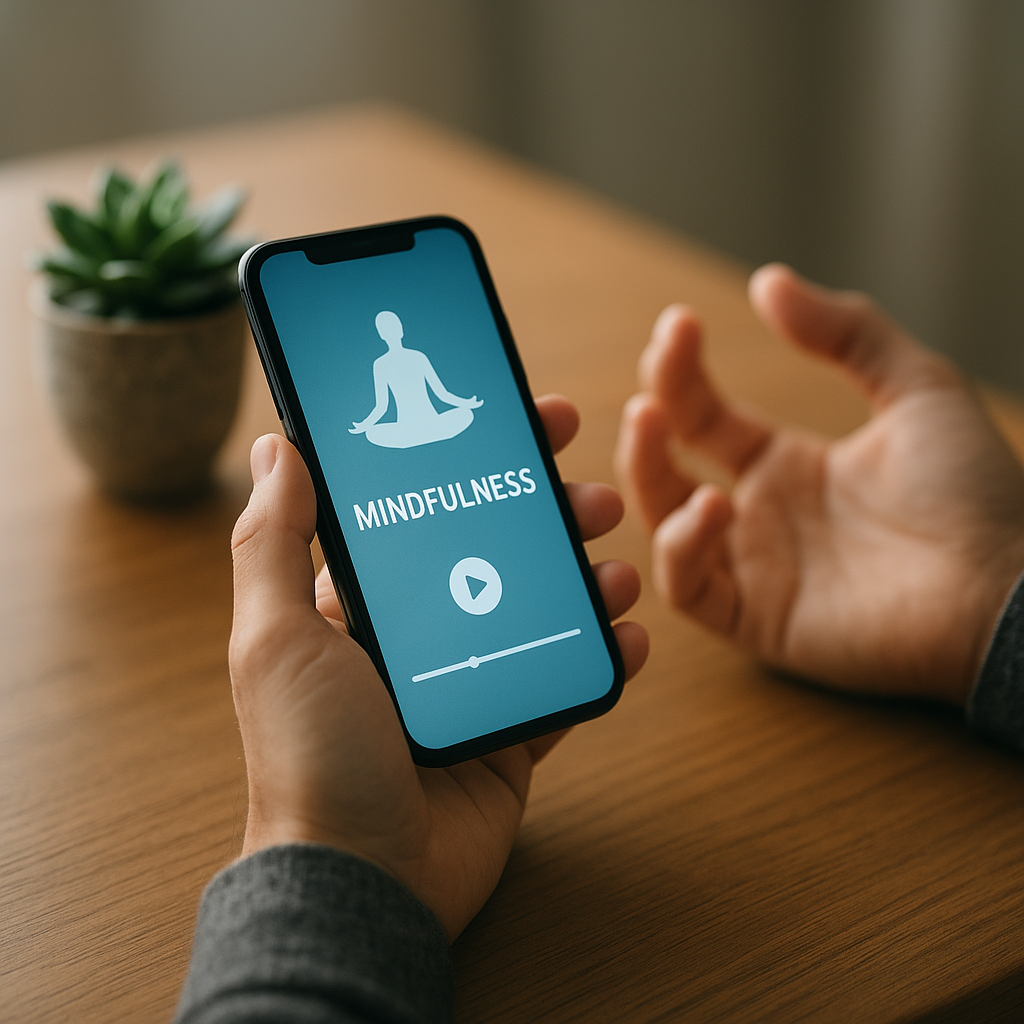Mindfulness Apps: Boost Your Mental Wellbeing
Exploring the Benefits of Mindfulness Apps for Mental Wellbeing In recent years, mindfulness apps have surged in popularity, offering users tools for improved mental wellbeing. This article explores how these digital platforms enhance menta
Exploring the Benefits of Mindfulness Apps for Mental Wellbeing
In recent years, mindfulness apps have surged in popularity, offering users tools for improved mental wellbeing. This article explores how these digital platforms enhance mental health, providing evidence and insights into their effectiveness and user experiences.

The Rise of Mindfulness Apps
With the growing acknowledgment of mental health issues, particularly in fast-paced societies, mindfulness apps have gained traction. These applications are designed to facilitate meditation, stress reduction, and overall mental wellness. Their rise can be attributed to a few significant factors:
- Accessibility: With smartphones dominating daily life, these apps can reach users anytime, anywhere.
- Customization: Users can tailor their mindfulness practices to fit personal preferences and daily schedules.
- Community Support: Many apps offer features that connect users, fostering a sense of community.
Understanding Mindfulness and Its Benefits
Mindfulness, defined as the practice of being present and fully engaging with the current moment, has numerous mental health benefits. Research highlights that regular mindfulness practice can:
- Reduce stress and anxiety levels.
- Enhance emotional regulation.
- Improve focus and concentration.
- Boost overall cognitive flexibility.
Engaging with mindfulness practices through apps can make it easier for users to incorporate these benefits into their daily lives.
Evidence Supporting Mindfulness Apps
Recent meta-analyses have highlighted the effectiveness of structured mindfulness programs delivered via digital platforms. Various studies indicate a significant reduction in symptoms of anxiety and depression among users who regularly practice mindfulness through such applications. Key findings from these studies include:
- Enhanced emotional wellbeing for consistent users.
- Notable increases in nature connectedness, leading to improved mood and life satisfaction.
- Greater accessibility to mindfulness resources, facilitating regular practice.
User Experiences and Testimonials
User testimonials reflect varied experiences with mindfulness apps. Some of the most common positive feedback involves:
“Using a mindfulness app has transformed how I cope with daily stress. The guided meditations help me pause and reset.”
“I love how I can track my progress. It’s inspiring and pushes me to stay consistent.”
However, feedback is not universally positive. Some users express concerns regarding:
- The overwhelming number of options, which can lead to decision fatigue.
- Challenges with maintaining consistency due to fluctuating motivation.
- Privacy issues surrounding personal data collected by the apps.
Choosing the Right Mindfulness App
With numerous mindfulness apps available, selecting the right one can be daunting. Here are some factors to consider:
- Content Variety: Look for apps that offer a range of content, including guided meditations, breathing exercises, and educational material.
- User Interface: A user-friendly design enhances the experience, making it easier to navigate through features.
- Community Features: Apps that encourage community involvement can add accountability and support.
Future of Mindfulness Apps
The future of mindfulness apps looks promising, especially as technology continues to evolve. Innovations like artificial intelligence (AI) may drive personalization to new heights, creating tailored experiences for individual users based on their preferences and mental health needs. Additionally, increased collaboration between app developers and mental health professionals can enhance therapeutic potential.
As mental health continues to be a prominent topic in public discourse, the accessibility and flexibility offered by mindfulness apps will likely contribute to their long-lasting vitality. Ensuring that these digital tools are used effectively and responsibly will be vital for maximizing their positive impact.
Conclusion
Mindfulness apps represent a valuable resource for enhancing mental wellbeing in contemporary society. As more individuals seek manageable ways to incorporate mindfulness into their lives, these applications provide effective solutions tailored to diverse needs. Embracing this technology can lead both individuals and communities toward healthier mental states and improved quality of life.
Related Video
For further insights, watch this video: Mindfulness Apps: Enhancing Mental Wellbeing.